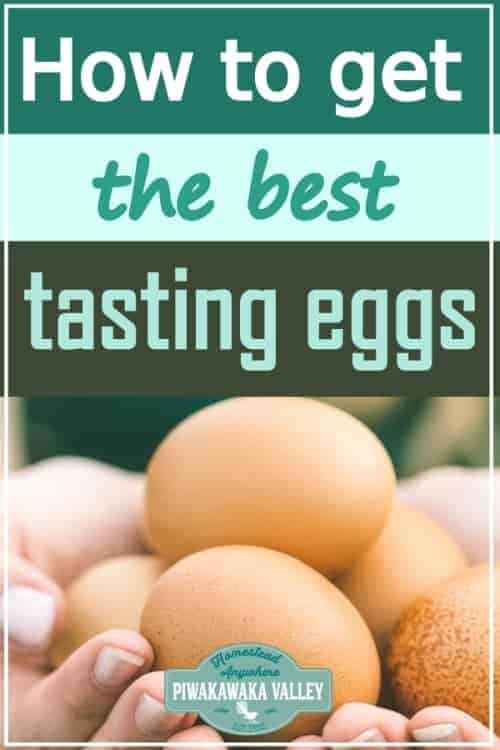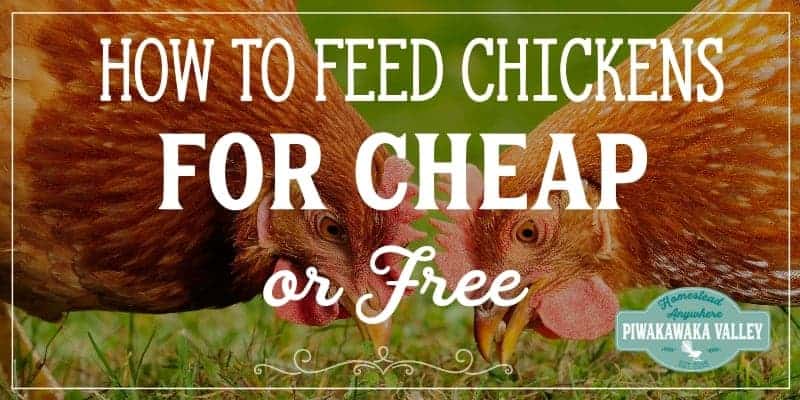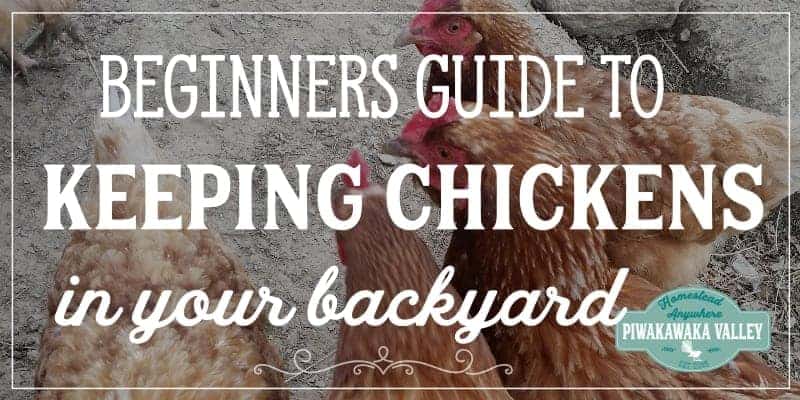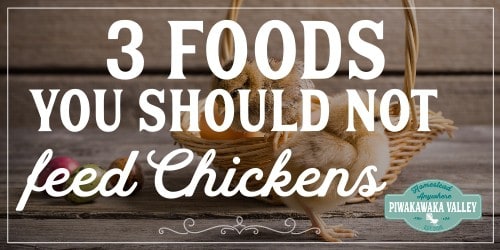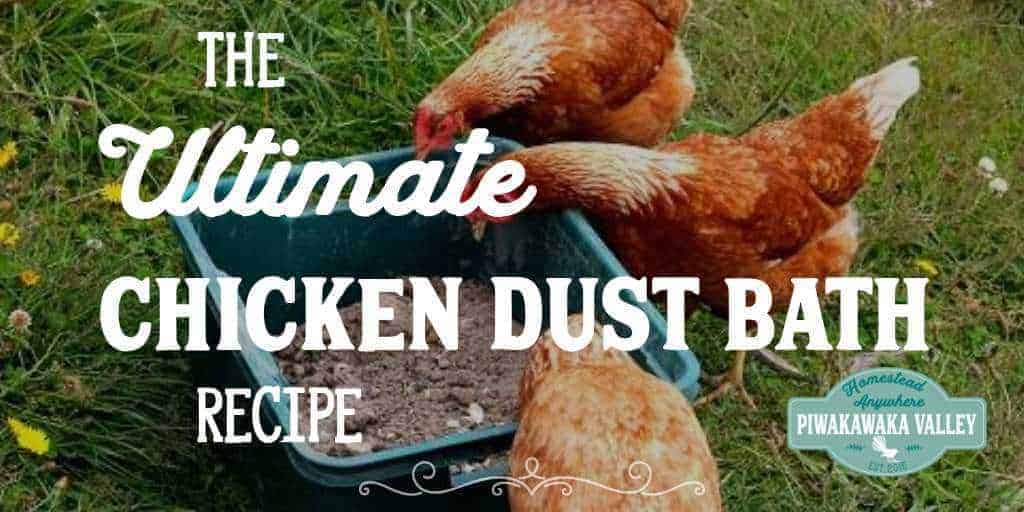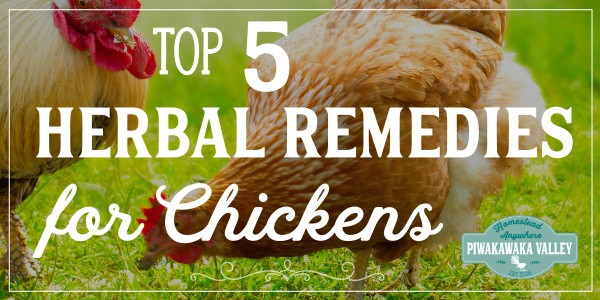This post was most recently updated on November 17th, 2020
The food that chickens eat can affect the flavour of the eggs the chickens produce. Knowing what to feed chickens to get the best tasting eggs will help you ensure you have the best tasting eggs to eat.
Please read: This information is provided for educational purposes only and is not intended to treat, diagnose or prevent any disease. We encourage you to make your own health care decisions in partnership with a qualified health care professional.
This post contains affiliate links, this means at no extra cost to you, we make a commission from sales. Please read our Disclosure Statement
Eggs have had a difficult time of it over the years – they have been cast as a villainous foodstuff that increases chances of heart disease and also elevated to the status of superfoods.
Even today consumers are fed a steady diet of conflicting research on the subject of just how good (or bad) eggs are for you.
But one thing cannot be denied – eggs are a staple food for millions across the world – due in part because they are so versatile.
Enjoy a highbrow Eggs Benedict, feast on quails eggs or simply tuck into what must be one of the ultimate comfort foods – an egg salad sandwich. The fact of the matter is that eggs simply taste good – and given their popularity maximizing that taste takes careful planning.
It’s also worth noting that the increased interest from consumers in keeping ‘backyard’ chickens in order to have ready access to protein in the form of fresh home produced eggs has increased interest in just what to feed chickens to ensure that the eggs produced are full to the brim with yolky goodness.
What To Feed Chickens To Get The Best Tasting Eggs
So here are some great guidelines to making sure your chickens produce the best-tasting eggs on the block.
1. Think about Protein Power
It’s worth remembering that the bulk of the nutritional value of eggs is supplied in the form of protein. If your chickens don’t have enough protein in their diet – those eggs are not going to shine – literally, more protein deepens that attractive yellow color of the yolk.
It is possible to buy bulk chicken pellets/feed – but for best results try some of the following ideas. Wheatgrass is great – try to source non GMO and organic.
Alfalfa is great to produce that rich golden egg yolk. Mealworms mimic some of the naturally occurring food sources and even Earthworms have their place. Fish meal is also a great feeding choice.
Flaxseed can up the Omega 3 content of eggs but use it sparingly.
RELATED: How to feed chickens for cheap
2. Go Green
Veggies are also an important part of the chicken’s diet that will contribute not only to keeping them healthy – but also encourage regular egg laying and optimize egg taste.
You can use a mix of veggies – but try and keep it to those vegetables that chickens enjoy.
Scraps may not always be the best solution. A mixture of cabbage, spinach, grass clippings and even some edible weeds is great.
Again – the goal should be to keep that diet as close to natural as possible. If you do have high-quality leftover table scraps they can be used – but sparingly.
Avoid raw potatoes as they can be toxic to the birds.
RELATED: 3 foods to avoid feeding chickens
3. Fabulous Fiber
Your chickens are going to have to have a healthy dose of fiber to promote egg laying – and keep them healthy. The key is to keep up the carb content while balancing out their fiber needs.
Whole grains get the job done – and chickens love them. Try oatmeal, rye or barley.
4. Cracking the Shell Code
A healthy helping of calcium is an absolute essential to promote egg laying and the production of great looking, strong and tasty eggs.
Calcium is essential for the formation of normal eggshells. In order to bolster calcium levels, you can add ground oyster shells or even ground eggshells to the feed mix.
A word of warning about adding eggshells to feed. Make sure that you cook the shells prior to adding them to feed – if you don’t chickens will associate their own eggs with their diet – and inevitably that will lead to an increase in broken and spoiled eggs.
5. Running Free
Sometimes it’s better to let nature find its own way. If you are lucky enough to have a substantial yard then make an effort to allow the chickens to forage for the food that they would enjoy if human beings were not providing nutritional help.
Even if you are supplementing feed a diet that adds insects, wild berries, weeds and seeds will add that extra level of taste to the eggs that are produced. Sometimes free range does have its benefits.
6. Always Hydrate
Aside from the fact that chickens may need supplementary feed in order to supply that perfect mix of fats, proteins, fiber and carbs they will also need a healthy source of water – and a lot of it.
Remember, water makes up around 50% of the volume of an egg, no fresh clean water means substandard eggs, or no eggs at all.
Check the quality of the water on a regular basis – chickens tend to foul their water (no pun intended) – and make sure to top up during hot weather and defrost it in the cold.
Foods to avoid feeding the chickens
Garlic and onions as well as some other strongly flavoured herbs are known to taint the flavour of the eggs. This can be an issue if you don’t like this flavour or if you are selling your eggs to others.
Following these simple hints and tips will result in healthier chickens that produce delicious eggs. Make sure your feathered friends are happy and they will oblige by providing you with eggs that will make you and the family happy, it’s a partnership.

